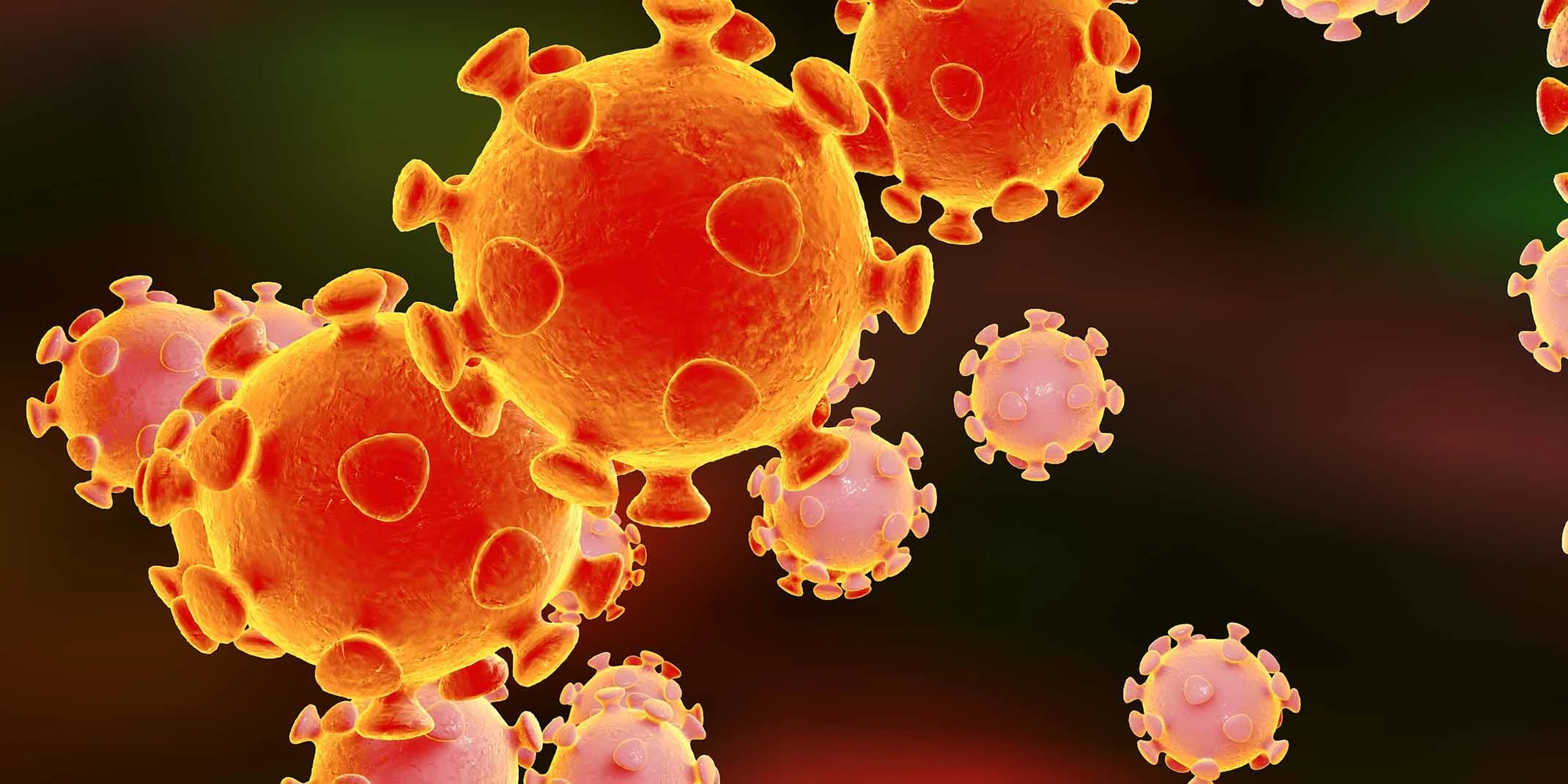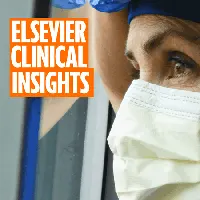Novel Coronavirus Information Center
2020年1月27日

Elsevier’s free health and medical research on the novel coronavirus (SARS-CoV-2) and COVID-19
Last updated 7/25/2023
Welcome to Elsevier's Novel Coronavirus Information Center. Here you will find expert, curated information for the research and health community on SARS-CoV-2 and COVID-19.
Note: In line with WHO ending the Public Health Emergency of International Concern for COVID-19 on 5 May 2023, Covid-19-related content published up until July 2023 will remain freely available for both reading and text and data mining.
Scroll down to find sections on:
Clinical resources
Mental health
Access to research
Vaccines & drug discovery
Public health
For researchers
In the Research section, you can access COVID-19-related articles from Elsevier, Cell Press and The Lancet, along with COVID-19-related book chapters, that we made freely available on ScienceDirect during the duration of the crisis. We also made this collection available as a machine-readable corpus to enable advanced discovery methods and identification of patterns and relationships in data (text and data mining). These articles are also available to download over FTP with rights for full text and data mining, re-use and analyses for as long as needed.
Server address: coronacontent.np.elsst.com
Protocol: sftp (SSH File Transfer Protocol)
Username: public
Password: beat_corona
You will need to use FTP client software such as Cyberduck or WinSCP to access the FTP server.
We shared daily updates to this corpus with the Allen Institute for inclusion in the multi-publisher CORD-19 dataset.
Additionally, we collaborated with the World Health Organization (WHO) and the National Library of Medicine (NLM) to make this content rapidly and freely available to global research and health communities as well as the general public from Pubmed Central (PMC) at PMC COVID-19 Collection, including for text and data mining via the PMC Open Access Subset.
In line with WHO ending the Public Health Emergency of International Concern for COVID-19 on 5 May 2023, Covid-19-related content published up until July 2023 will remain freely available for both reading and text and data mining. This content is available both via Elsevier’s websites, as well as via PMC whom we allow to retain this content in perpetuity under the terms of the original licenses.
For clinicians
Under the Clinical information tab, you will find evidence-based skill guides and care plans for treatment, safety and patient education, along with emergency prepared resources.
For patients
In the Patient Resources section, you can find our 3D4Medical coronavirus video, resources from the CDC and WHO, and information about Elsevier's Patient Access Program for research.
Introduction
Margaret Trexler Hessen, MD, Director, Point of Care, Elsevier
When we created this resource in January 2020, we anticipated “an explosion of clinical and epidemiological information and research,” and we have certainly seen that. Our goal was to open whatever resources we could to help public health authorities, researchers and clinicians contain and manage this disease. We continue to provide regularly updated resources from Elsevier's content and experts. Our resources span scientific and medical journals, educational offerings — including our clinically focused COVID-19 Healthcare Hub — and podcast interviews with internationally-recognized experts. We are also participating in the Education Continuity License from the Copyright Clearance Center, allowing the use of publishers’ materials in distance-learning models and other uses as required by the pandemic at no cost to the user. In addition, Elsevier has from the beginning enabled full text and data mining of this growing body of knowledge through channels such as the NIH’s PubMed Central and the WHO database for free and without copyright limitations. Elsevier, Cell Press and The Lancet have also joined the signatories on the Wellcome Trust’s Statement, designed to ensure that research findings and data relevant to this outbreak are shared rapidly and openly to inform the public health response and help save lives. Elsevier has been pleased and proud to provide these resources to more than 2 million users. If you're looking for information on our other free and low-cost access programs, including resources for patients and caregivers, you can find that here.
Clinical information
In this section, you can find resources from Elsevier Clinical Solutions, including guidance from ClinicalKey, Clinical Skills for Nursing, Interprofessional care plans and Patient Education resources. Gain access to our latest evidence-based practices and resources for COVID-19, covering topics from symptom management to diagnosis, treatment and ongoing wellness. These resources include Clinical Overviews on ClinicalKey — easy-to-scan clinically focused medical topic summaries designed to match the clinician workflow. Elsevier's Point-of-Care Editorial team develops them through a process that includes review and revision by a medical editor; peer reviews performed by subject matter experts; a production review to ensure consistency in style, grammar, and punctuation; and a final evaluation by the editor-in-chief.
Elsevier has created a dedicated COVID-19 Healthcare Hub for clinicians in India.
Vaccine guidelines
You can find more information on vaccines in Elsevier's COVID-19 Healthcare Hub Vaccine Toolkit:
Podcast series
In Elsevier's podcast series for frontline clinicians and providers, experts share their insights into the mode of transmission and pathophysiology of the virus, how medical informatics and telemedicine are used to manage the pandemic, and best practices for emergency nursing crisis preparedness.

Mental and behavioral health
With the fear and uncertainty brought on by the pandemic — and calls for social distancing — many people are experiencing increased stress, anxiety and depression. Our evidence-based patient education resources support professional practice guidelines, presenting information in a way that is easy to understand and actionable.
Anxiety resources
Elsevier has created this anxiety screening tool as part of our COVID-19 resources for patients, clinicians and the public. It's designed for individuals age 13 years and older. For all others, please talk to your healthcare team about you or your child’s questions and concerns. More resources:
Watch a video on Managing anxiety adult
Book chapters and peer-reviewed articles from Elsevier journals
Anxiety Disorders, Chapter 24, Stress: Concepts, Cognition, Emotion, and Behavior: Handbook in Stress Series, Volume 1 (Academic Press, 2016)
Fatigue and Stress, Chapter 42, Concepts, Cognition, Emotion, and Behavior (Academic Press, 2016)
Exercise for the Management of Anxiety and Stress-Related Disorders, Chapter 2, Exercise-Based Interventions for Mental Illness (Academic Press, 2018)
Anxiety (Generalized Anxiety Disorder), Ferri's Clinical Advisor (Elsevier, 2020)
Journal articles
Generalized anxiety disorder, depressive symptoms and sleep quality during COVID-19 outbreak in China: a web-based cross-sectional, Psychiatry Research (June 2020)
Epidemic of COVID-19 in China and associated Psychological Problems, Asian Journal of Psychiatry (June 2020)
Depression resources
Elsevier has created this depression screening tool as part of our COVID-19 resources for patients, clinicians and the public. It's designed for individuals age 18 years and older. For all others, please talk to your healthcare team about you or your child’s questions and concerns.
Watch a video on Mental Health Depression
Book chapters and peer-reviewed articles from Elsevier journals
Novac, Andrei, MD: Depressive, Bipolar, and Related Mood Disorders, Conn's Current Therapy (Elsevier, 2020 )
Zimmerman M, D’Avanzato C: Major Depression, Ferri's Clinical Advisor (Elsevier, 2020)
Journal articles
The psychological impact of quarantine and how to reduce it: rapid review of the evidence, The Lancet (March 2020)
Suicidal thoughts and behaviors and social isolation: A narrative review of the literature, Journal of Affective Disorders (Feb 2019)
Research
Related articles freely available on ScienceDirect
Elsevier made coronavirus-related articles and book chapters freely available on ScienceDirect, commencing in February 2020, and lasting for the duration of the crisis. We also made this collection available as a machine-readable corpus to enable advanced discovery methods and identification of patterns and relationships in data (text and data mining).
Additionally, we collaborated with the World Health Organization (WHO) and the National Library of Medicine (NLM) to make this content rapidly and freely available to global research and health communities as well as the general public from Pubmed Central (PMC) at PMC COVID-19 Collection, including for text and data mining via the PMC Open Access Subset.
In line with WHO ending the Public Health Emergency of International Concern for COVID-19 on 5 May 2023, Covid-19-related content published up until July 2023 will remain freely available for both reading and text and data mining. This content is available both via Elsevier’s websites, as well as via PMC whom we allow to retain this content in perpetuity under the terms of the original licenses.
Additional resources include:
The Lancet Coronavirus Hub: The Lancet's Coronavirus hub page brings together COVID-19 related content from The Lancet journals.
Cell Press Coronavirus Resource Hub: On the Coronavirus Resource Hub, curated by members of the Cell Press editorial team, you'll find COVID-19-related content published in Cell Press journals.
Content hubs from other publishers. Elsevier is among various publishers who made relevant papers freely available. Others included: Springer Nature | Wiley | NEJM | BMJ | American Society for Microbiology | American College of Cardiology. Many publishers have also signed the Wellcome Trust Statement committing to share relevant nCoV research and data rapidly and openly. You can find all these publishers and more on LitCovid — the National Library of Medicine's curated hub of scientific literature about novel coronavirus. It currently provides access to more than 3,200 articles in PubMed and is being updated daily.
Early-stage research: preprints on SSRN
Rapidly evolving healthcare emergencies necessitate the quick dissemination of research. The growing role of preprints, or early-stage research, was acknowledged in the Ebola and Zika virus outbreaks as a way of “accelerating the dissemination of scientific findings to support responses to infectious disease outbreaks.” SSRN , Elsevier’s platform for the rapid worldwide dissemination of early-stage research, is committed to making authors' coronavirus related research available immediately. Research on SSRN is free to download and upload. It is important to note that these papers have not benefited from the pivotal role of the peer-review process, which validates and improves the quality of final published journal articles.
Patient resources
Elsevier's Patient Access Program for research. With our Patient Access Program, patients and their caregivers can receive medical or healthcare related research papers by emailing [email protected]. This email is constantly monitored by our support teams, who aim to provide individual articles at no cost to patients and caregivers within 24 hours. Requesters simply need to include the article title and authors, date published, and/or the DOI or URL if available so we can locate the article as quickly as possible. Learn more
Mental & Behavioral Health: See our Patient Education resources in the Mental & Behavioral Health section above.
عدوى فيروس كورونا المستجد (patient education in Arabic)
Usage notice
In January 2020, Elsevier created this online resource center with free information in English and Mandarin on the novel coronavirus (COVID-19).
This Novel Coronavirus Information Center is hosted on Elsevier Connect, the company’s public news and information website.
Elsevier hereby grants permission to make COVID-19-related research that was available on the COVID-19 resource center — including COVID-19-related research content published before July 2023 — immediately available in PubMed Central and other publicly funded repositories, such as the WHO COVID database with rights for unrestricted research re-use and analyses in any form or by any means with acknowledgement of the original source. These permissions are granted for free by Elsevier for as long as the COVID-19 resource center remains active.